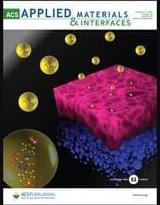This work explores the potential for additive manufacturing to be used to fabricate ultraviolet light-blocking or photocatalytic materials with in situ resource utilization, using a titania foam as a model system. Direct foam writing was used to deposit titania-based foam lines in microgravity using parabolic flight. The wet foam was based on titania primary particles and a titania precursor (Ti (IV) bis(ammonium lactato) dihydroxide). Lines were also printed in Earth gravity and their resulting properties were compared with regard to average cross-sectional area, height, and width. The cross-sectional height was found to be higher when printing at low speeds in microgravity compared to Earth gravity, but lower when printing at high speeds in microgravity compared to Earth gravity. It was also observed that volumetric flow rate was generally higher when writing in Earth gravity compared to microgravity. Additionally, heterogeneous photocatalytic degradation of methylene blue was studied to characterize the foams for water purification and was found to generally increase as the foam heat treatment temperature increased. Optical and scanning electron microscopies were used to observe foam morphology. X-ray diffraction spectroscopy was used to study the change in crystallinity with respect to temperature. Contact angle of water was found to increase on the surface of the foam as ultraviolet light exposure time increased. Additionally, the foam blocked more ultraviolet light over time when exposed to ultraviolet radiation. Finally, bubble coarsening measurements were taken to observe bubble radius growth over time.
